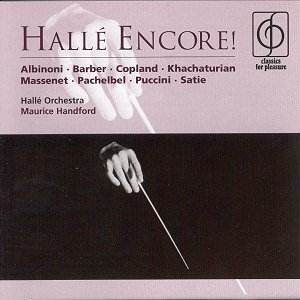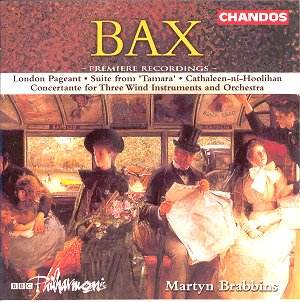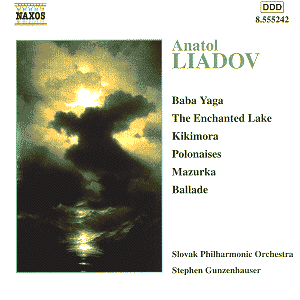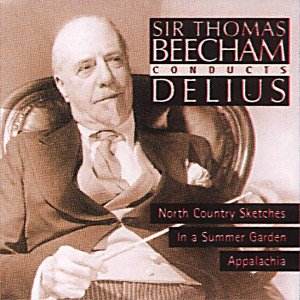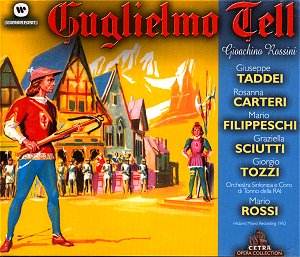 Composer: Gioachino Rossini
Composer: Gioachino Rossini
Works: Guglielmo Tell
Performers: Giuseppe Taddei (Guglielmo Tell), Rosanna Carteri (Matilde), Mario Filippeschi (Arnoldo), Giorgio Tozzi (Gualtiero), Plinio Clabassi (Melchtal), Graziella Sciutti (Jemmy), Miti Truccato Pace (Edvige), Fernando Corena (Gessler), Turin RAI Chorus and Symphony Orchestra/Mario Rossi
Recording: 13 November 1951, Turin
Label: WARNER FONIT 8573 87489-2 [3 CDs: 65.41, 47.27, 53.04]
Guglielmo Tell, Rossini’s final opera, represents a pinnacle in the bel canto tradition, a work intricately laced with thematic complexity and dramatic depth. Premiered in 1829, it diverges from the composer’s earlier operatic style by incorporating elements of grand opera, particularly in its orchestration and thematic scope. The opera’s narrative, steeped in the Swiss struggle for independence, allows Rossini to explore a broader emotional palette, ranging from patriotic fervor to intimate personal crises. This 1951 recording under Mario Rossi, although historically significant, raises intriguing questions about its interpretative decisions and sound quality when juxtaposed with modern renditions.
Mario Rossi’s conducting showcases a unique blend of romantic expressiveness and a commitment to Rossini’s rhythmic vitality. The orchestral introduction unfolds with a portamento-laden warmth from the cellos, evoking a nostalgic pre-war style that resonates with the opera’s pastoral elements. This aesthetic choice may evoke a sense of longing for a bygone era, yet it occasionally veers into overly sentimental territory, detracting from the dynamic vigor that Guglielmo Tell can embody. The interplay between the orchestra and singers, particularly in the first act’s ensemble numbers, exhibits a vigorous attack that highlights the ensemble’s collective energy. The clarity of the voices, delivered with a striking presence, contrasts with the backhanded orchestral support, which suffers from a boxy sound characteristic of mid-20th century recordings.
The vocal performances stand as a testament to the era’s operatic prowess. Giuseppe Taddei’s portrayal of Guglielmo is marked by a commanding authority that belies his relatively young age at the time of recording. His interpretations of the character’s emotional landscape are nuanced, particularly in the aria “Amici, in un giorno,” where he balances lyrical beauty with dramatic intensity. Rosanna Carteri’s Matilde, recorded when she was merely 21, showcases a youthful exuberance that is both thrilling and slightly under-polished. Her high notes ring with clarity, yet one senses the potential for greater maturity that would develop in her later career. Mario Filippeschi, as Arnoldo, navigates the demanding tessitura with commendable ease, allowing the lyrical lines to flow with a natural grace that enhances the overall dramatic effect.
However, the recording’s technical quality cannot be overlooked. While the voices are captured with an immediacy that engages the listener, the orchestral sound is hampered by a pronounced treble that lacks depth. The balance between the singers and the orchestra is uneven, often placing the soloists in stark relief against a backdrop that feels distant and unyielding. Such limitations are not uncommon in historical recordings, yet they challenge the listener’s engagement with the work’s full orchestral texture. Listening through headphones mitigates some of this imbalance, revealing a more rounded sound that may enhance enjoyment, though the initial experience in a typical listening environment can be jarring.
This recording of Guglielmo Tell occupies a curious niche within the landscape of Rossini’s oeuvre. While it may not supplant more polished modern interpretations—such as those conducted by Riccardo Chailly or Claudio Abbado—it offers valuable insights into the performance practices of the early 1950s. The presence of distinguished artists like Taddei, Carteri, and Filippeschi enriches the experience, making it a worthy addition to the discography for enthusiasts of Rossini and his operatic legacy. The historical context this recording provides is invaluable for understanding the evolution of performance styles and interpretative choices in Rossini’s work. For those with a keen interest in operatic history, this recording presents a fascinating glimpse into a transitional period that shaped the perception of Guglielmo Tell in the 20th century. It serves not merely as a document of its time but as a reminder of the enduring relevance of Rossini’s genius.
